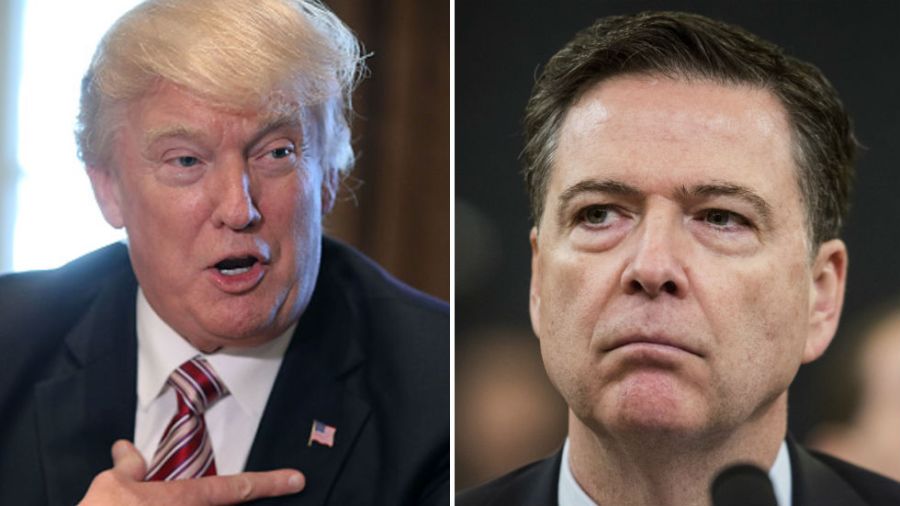Is Trump engaging in political prosecution — and can he get away with it?

Increasingly, persons accused of or investigated for crimes are claiming that prosecutors are motivated by politics or vengeance. Despite these sometimes facially meritorious claims, they very rarely succeed.
That’s because prosecutors enjoy tremendous discretion in choosing which individuals to charge with crimes, and which individuals will receive leniency for cooperation. Individuals suspected of participating in the same offense are thus very likely to receive disparate treatment.
A prosecutor’s discretion, however, is not unlimited. Arbitrary selection of defendants may violate constitutional principles of equal protection. But cases actually finding discriminatory enforcement are rare.
The issue of selective prosecution has been raised by some critics who have accused the Justice Department of showing favoritism to friends or associates of President Trump and investigating Trump’s enemies. For example, the department dropped charges against New York City Mayor Eric Adams — as many suspected, in exchange for his cooperation in immigration enforcement. Justice also discontinued an investigation against Rep. Andy Ogles (R-Tenn.), who introduced a bill that would clear the way for Trump to serve a third term in office.
In contrast, the Justice Department has assigned a “strike force” to investigate charges that former President Barack Obama conspired with former FBI Director James Comey, former CIA Director John Brennan and others to falsely show Russian influence, with the goal of harming Trump in the 2016 presidential election. Very recently, the Justice Department opened a civil rights investigation into New York Attorney General Letitia James (D), a longtime Trump nemesis who brought a major civil case against him that has now failed in significant part. And just a few days ago, the FBI searched the home and office of John Bolton, Trump’s former national security adviser, whom Trump has called a “lowlife.”
Is the Justice Department engaging in unconstitutional selective prosecution against Obama, Comey, Brennan, James and Bolton if it ultimately brings charges against them? The law is unclear.
Nearly 140 years ago, in Yick Wo v. Hopkins, the Supreme Court first recognized that discriminatory law enforcement could violate the Constitution’s Equal Protection Clause. The defendant, a Chinese citizen, was convicted of violating a San Francisco ordinance prohibiting operating laundries in wooden buildings without a license. Yick Wo, along with 200 Chinese operators, had all been denied licenses. But all 80 non-Chinese operators of wooden structures were granted licenses.
As the court held, the disparate enforcement was undertaken “with an evil eye and an unjust hand” and showed unmistakably a “hostility to the race and nationality” of the Chinese applicants.
But Yick Wo is a unique case. It’s hard to find another in which the statistics show almost conclusively an “evil eye,” meaning a deliberate intent to discriminate.
In the numerous cases raising the claim of selective prosecution, the court has held that the mere fact of unequal treatment by prosecutors does not trigger a constitutional claim. To prove discriminatory enforcement, a defendant must show that a prosecutorial policy of selective enforcement had both a discriminatory effect and a discriminatory intent.
To show discriminatory effect, a defendant must show that other persons similarly situated and equally subject to prosecution were not prosecuted. To show discriminatory intent, he must further show that he was singled out as a result of a conscious, deliberate and purposeful decision motivated by arbitrary and invidious considerations.
So, to show selective prosecution based on race, a defendant would have to show that only black persons were prosecuted while white persons were not. Or to show selective prosecution based on political affiliation, a defendant would have to show that only Democrats were prosecuted while Republicans were not.
Even if a defendant is able to show a discriminatory effect, he still must show that he was singled out based on impermissible considerations. This type of showing is exceedingly difficult. A defendant would have to penetrate the mind of the prosecutor and demonstrate that he or she prosecutor acted in bad faith and for constitutionally impermissible reasons, such as race, nationality, religion or the exercise of fundamental rights such as speech or association.
Courts presume that prosecutors act in good faith for the purpose of fulfilling the duty to bring law violators to justice. They typically defer to prosecutors because courts are not privy to the multitude of factors that go into a prosecutor’s decision to prosecute. As the Supreme Court wrote in the 1962 case Oyler v. Boles, “the conscious exercise of some selectivity in enforcement is not in itself a constitutional violation.”
Defendants thus face a heavy challenge in proving selective prosecution. Arguing that the current “political climate” demonstrates selective prosecution is insufficient to show an intent to discriminate. However, specific statements made by the president, the attorney general or other high-ranking law enforcement officials could be used as circumstantial evidence of an intent to discriminate.
The Justice Department may appear to observers to be enforcing the law selectively to favor Trump loyalists and disfavor his enemies. But if there is sufficient proof of wrongdoing on the defendants’ part, the daunting requirements for proving invidious intent means that any challenge to the department’s enforcement policies would likely fail.
Bennett L. Gershman is a distinguished professor of law at Pace University and author of “Prosecutorial Misconduct.” Joel Cohen is senior counsel at Petrillo Klein and Boxer, author of “Blindfolds Off: Judges on How They Decide” and an adjunct professor at both Fordham and Cardozo Law Schools.